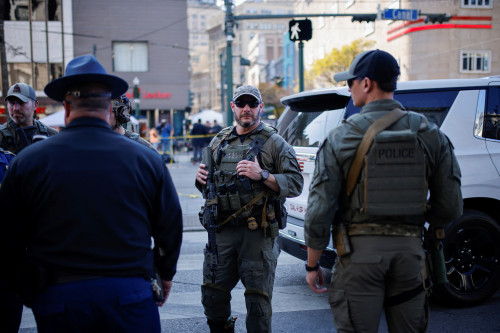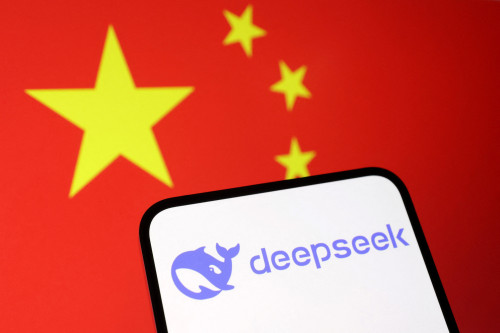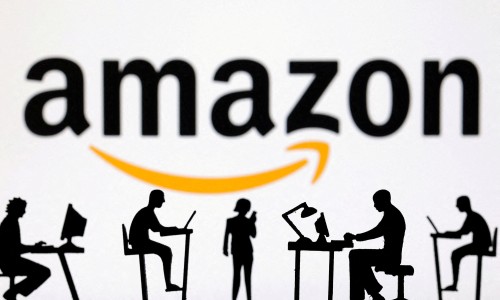By Tim Reid, Ned Randolph and Helen Coster
WASHINGTON/NEW ORLEANS (Reuters) – Law-enforcement officials in U.S. cities were beefing up security on Thursday after a deadly attack in New Orleans and an explosion outside a Trump hotel in Las Vegas raised fears of more threats in a month packed with large-scale public events.
Police in Washington, the site of the Jan. 9 state funeral for former President Jimmy Carter and President-elect Donald Trump’s Jan. 20 inauguration, said in a statement it has raised security across the city “in light of recent events,” and that the community will notice an increased police presence.
Republican Trump is also due to hold a “victory rally” at Washington’s Capital One Arena on Jan. 19. By Wednesday night, as fans arrived for a Washington Wizards basketball game at the arena, vehicle barriers closed off an adjacent street, a security measure not usually seen before the NBA team’s home games.
Trump’s Nov. 5 presidential election victory is due to be certified by the U.S. Congress on Jan. 6 – the fourth anniversary of an attack on the U.S. Capitol building by Trump supporters at the same ceremony in 2021.
For the first time, the ceremony has been designated a National Special Security Event, a decision made before the New Orleans attack. That designation means the U.S. Secret Service will take the lead security role, the agency told Reuters in a statement.
“We will continue to work with our federal, state, and local law enforcement partners in assessing the ever-changing threat landscape and will adjust our security plans as needed,” Matthew Young, a U.S. Secret Service spokesperson said.
INVESTIGATION CONTINUES INTO NEW ORLEANS ATTACK
The investigation into what motivated a U.S. Army veteran carrying an Islamic State flag on his truck to plow into a crowd of New Year’s revelers in New Orleans continued, as authorities beefed up security ahead of the Sugar Bowl college football game to be played less than a mile from Wednesday’s mayhem. At least 15 people, including the suspect, were killed in the attack.
FBI officials said they were looking for links between the New Orleans attack and a separate incident on Wednesday in which a Tesla Cybertruck packed with gasoline canisters and large firework mortars exploded outside the Trump International Hotel in Las Vegas.
The FBI Washington Field Office said in a statement that while it did not have information linking any local threat with the New Orleans attack, it was sharing information with other law-enforcement agencies to disrupt potential threats.
On Wednesday, Louisiana Governor Jeff Landry declared a state of emergency in Orleans Parish ahead of the Feb. 9 Super Bowl football game and Mardi Gras, which starts on Jan. 6. Authorities said on Thursday the governor’s declaration will allow additional resources to remain in the city through the end of Mardi Gras on March 4.
New Orleans City Council president Helena Moreno said a security perimeter around the Superdome, where the Sugar Bowl game was due to kick off on Thursday afternoon, had been expanded with water-filled barricades. The stadium had been swept multiple times with bomb-sniffing dogs.
The game was postponed from Wednesday after the truck attack.
“The level of resources and security in my opinion is unprecedented,” Moreno told a reporter. That included 100 National Guardsmen and law-enforcement officials from multiple agencies, she said.
In New York, there were more police than usual around Penn Station, a major train station, with nearby road closures.
The city’s Mayor, Eric Adams, said on social media that after the New Orleans attack, the New York Police Department heightened security at several locations, including Trump Tower and Times Square.
Despite the lack of credible threats, “we are on alert,” Adams wrote.
The NYPD said in a statement: “The NYPD has been closely monitoring recent events in New Orleans and coordinating with federal and regional partners. We have not identified any specific/credible threats or any nexus to New York City at this time.”
(Reporting by Tim Reid, Ned Randolph and Helen Coster. Editing by Paul Thomasch and Rod Nickel)





